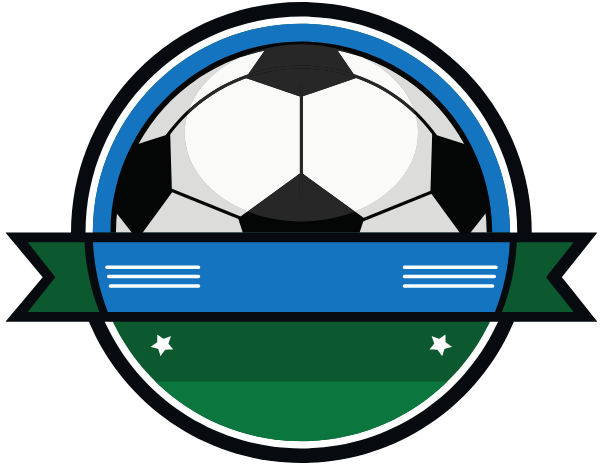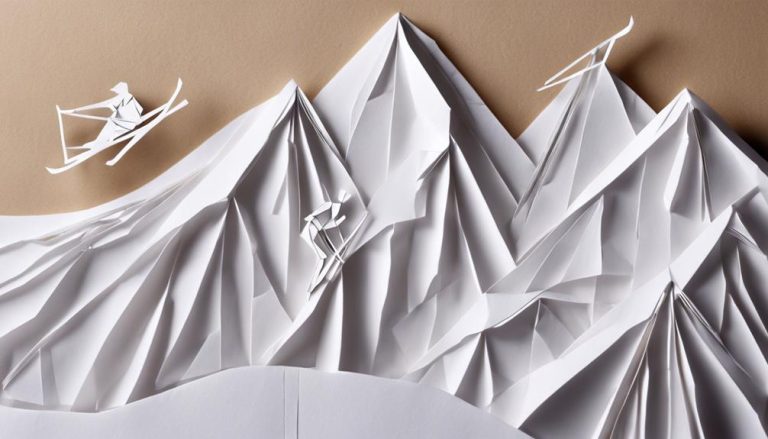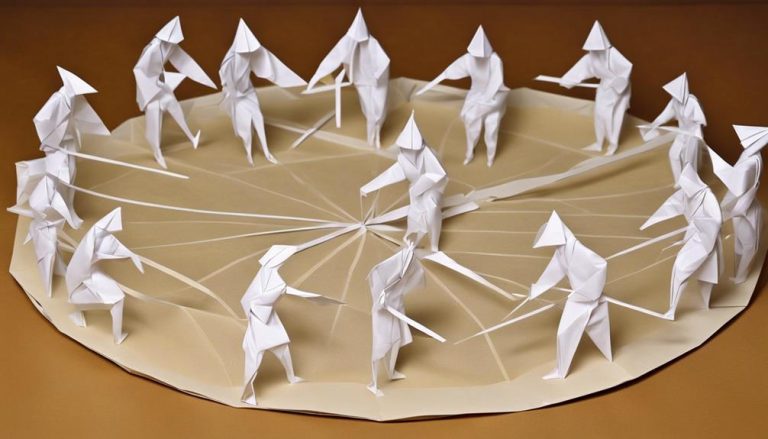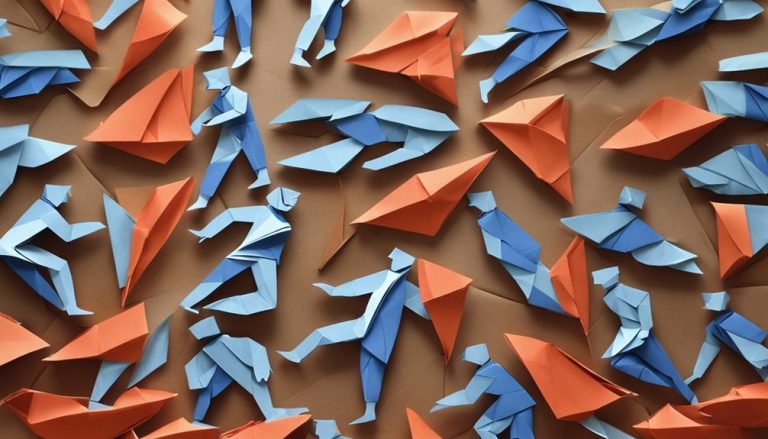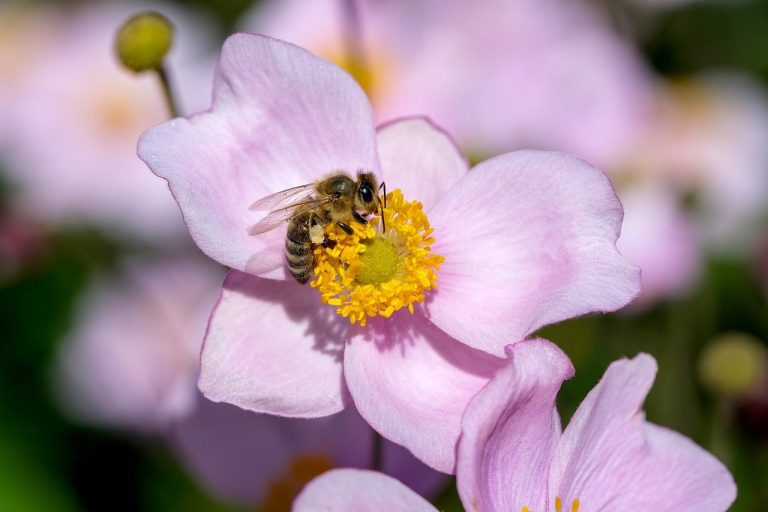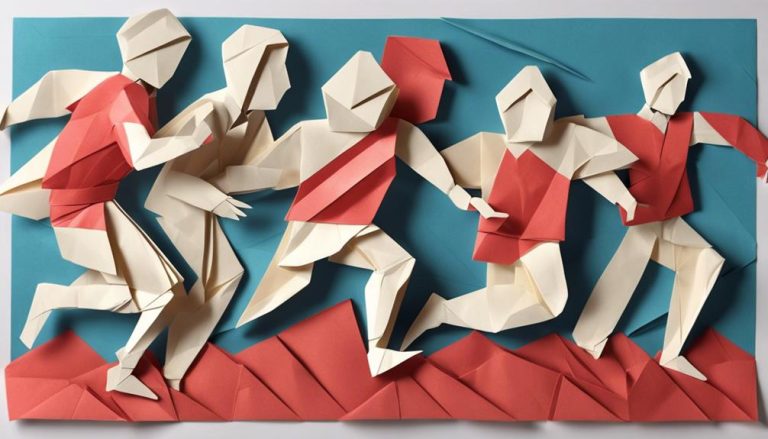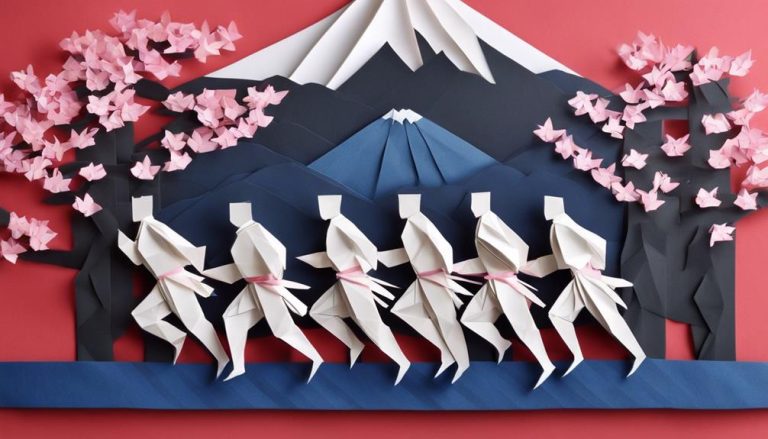General Rules of Freestyle Skateboarding
Ready to shred in the world of freestyle skateboarding? Master essential rules: show respect at skateparks, wear safety gear, progress skills gradually, connect with skaters, maintain equipment, understand scoring, and name tricks correctly. Uphold filming and social media etiquette, be environmentally aware. The passion and creativity in freestyle skateboarding await your embrace.
Skatepark Etiquette

When skating at a skatepark, always remember to show respect for fellow skaters and park equipment. Essential park behavior is vital for maintaining a positive and inclusive environment for everyone. Skatepark flow refers to the rhythm and movement of skaters within the park, ensuring a seamless and enjoyable experience for all. As you navigate the park, be mindful of others around you, taking turns on obstacles, and communicating effectively to prevent collisions. Embrace the freedom and creativity that skateboarding offers, but do so with a sense of responsibility towards your fellow skaters.
Respecting the skatepark rules and guidelines not only enhances your own experience but also contributes to the overall camaraderie of the skating community. By following proper park behavior, you are not only showcasing your skills but also your respect for the space and those sharing it with you. Remember, skateboarding is a form of expression and individuality, but it is also a shared passion that thrives on mutual respect and understanding.
Safety Gear Requirements
Guaranteeing proper safety gear is worn at all times is essential for protecting yourself while engaging in freestyle skateboarding. Your helmet is your shield, your pads are your armor. Without them, you're vulnerable to the risks that come with this exhilarating sport. Before you hit the pavement, make sure your helmet fits snugly, your pads cover your knees and elbows, and your gear is properly maintained. Safety precautions should never be overlooked; they are your lifeline. Remember, even the most experienced skaters can fall, so never underestimate the importance of protective gear.
Practice doesn't make perfect if you're nursing an injury. Supervision is key, especially for beginners. Having someone watch over you can prevent accidents and provide immediate assistance if needed. Embrace the freedom of freestyle skateboarding, but do it responsibly. Regular gear maintenance ensures your protection remains intact. So, gear up, practice diligently, and skate on with confidence.
Skill Level Progression

To advance your freestyle skateboarding abilities, consistent practice and dedication are paramount. Progressing in skill level requires pushing your limits, exploring new tricks, and honing your techniques. Embrace the challenge of mastering more complex maneuvers while staying true to your unique style. Trick difficulty should gradually increase as you become more comfortable with foundational moves. Set achievable goals for each practice session and celebrate your victories, no matter how small they may seem at first.
In your freestyle routine, let creativity be your guide. Experiment with different combinations of tricks, progressions, and footwork to develop a signature style that sets you apart. Remember, freestyle skateboarding is as much about self-expression as it is about technical proficiency. Stay open to inspiration from various sources, whether it's other skaters, art, music, or nature.
| Trick Difficulty and Progression | Freestyle Routine and Creativity |
|---|---|
| Gradually increase difficulty | Experiment with different styles |
| Master foundational moves first | Incorporate personal flair |
| Set achievable goals | Stay open to inspiration |
Respect for Other Skaters
Respect your fellow skaters on the freestyle scene by always acknowledging and valuing their dedication and passion for the sport. In the skatepark, it's important to exhibit proper skatepark behavior. Be mindful of others' space and avoid cutting off lines or hogging obstacles. Remember, the skatepark is a communal space where everyone deserves a chance to express themselves freely. Engage with the community by supporting and encouraging your fellow skaters. Cheer them on when they land a new trick and offer help or advice when needed. Building a positive and inclusive environment benefits everyone involved.
Community engagement is at the heart of freestyle skateboarding. By fostering a sense of camaraderie and mutual respect, you contribute to a more vibrant and welcoming skate scene. Embrace the diversity within the community and celebrate each skater's unique style and approach. Together, we can create a supportive culture where everyone feels empowered to push their boundaries and express their creativity on the board.
Proper Equipment Maintenance

Maintaining your skateboarding equipment is essential for peak performance and safety on the streets and at the skatepark. Proper equipment care and board maintenance can make a significant difference in your riding experience. Here are some essential tips to keep your gear in top shape:
- Regular Cleaning: After each session, make sure to clean your board, trucks, and wheels to prevent dirt buildup that can affect performance.
- Tighten Hardware: Check and tighten your board's hardware frequently to avoid any loose bolts that could lead to accidents.
- Inspect for Damage: Regularly inspect your board for any cracks, chips, or signs of wear and tear that may compromise its structural integrity.
- Lubricate Bearings: Keep your bearings well-lubricated to ensure smooth rotations and prevent them from seizing up.
- Store Properly: When not in use, store your skateboard in a dry place away from extreme temperatures to prevent warping or damage to the deck.
Competition Rules and Formats
Alright, skater, let's talk about the POINTS in freestyle skateboarding competitions. These are what can make or break your performance, so understanding the judging criteria, the duration of your routine, and the potential deductions is essential. Keep a sharp eye on those points; they hold the key to victory on the freestyle skateboarding stage.
Judging Criteria Explained
When it comes to understanding the judging criteria in freestyle skateboarding competitions, it is essential to grasp the intricate details that determine a skater's performance evaluation. To help you navigate the world of freestyle skateboarding judging, here are some key points to take into account:
- Performance Evaluation: Judges assess the skater's trick execution and technical proficiency.
- Creativity Assessment: Originality and innovation in trick selection play a significant role in scoring.
- Style Presentation: How the skater carries themselves, their flow, and overall aesthetic impact are paramount.
- Difficulty Level: The complexity and risk factor of the tricks attempted are taken into consideration.
- Consistency: The ability to perform tricks flawlessly and string them together without mistakes is highly valued.
Understanding these criteria can help you enhance your performance and excel in freestyle skateboarding competitions.
Freestyle Routine Duration
To fully showcase your skills and captivate the audience in freestyle skateboarding competitions, mastering the allotted freestyle routine duration is crucial. When crafting your routine, consider the importance of timing. Your performance should align seamlessly with the music selection, enhancing the overall impact. Additionally, costume creativity can elevate your presentation, making it more engaging and memorable. Choreography plays an essential role in keeping your routine dynamic and exciting, so plan your moves carefully to maintain flow consistency throughout. By understanding the significance of freestyle routine duration and incorporating elements like music, costumes, choreography, and flow, you can create a mesmerizing performance that leaves a lasting impression on both judges and spectators.
Point Deductions System
Mastering the intricate Point Deductions System in freestyle skateboarding competitions is essential for competitors aiming to secure top scores and showcase their skills effectively. When understanding this system, keep in mind the following key points:
- Scoring Breakdown: Familiarize yourself with how points are allocated for various elements of your performance.
- Trick Difficulty: Focus on executing challenging tricks to earn higher scores.
- Consistency: Avoid errors and maintain a smooth flow throughout your routine.
- Time Management: Stay within the allocated time limit to prevent deductions.
- Presentation: Pay attention to style and showmanship to impress the judges and audience.
Trick Naming and Recognition
Understanding trick naming and recognition is essential for every freestyle skateboarder to effectively communicate and showcase their skills. When it comes to trick variations, naming conventions play an important role. Each trick in freestyle skateboarding has a specific name that helps skaters worldwide understand and attempt these maneuvers. By mastering the naming conventions, you not only demonstrate your knowledge of the sport but also contribute to its rich history and culture.
Furthermore, trick recognition is significant in competitions where a scoring system is in place. Judges evaluate skaters based on the difficulty, execution, style, and originality of their tricks. Being able to accurately name and recognize tricks will not only help you communicate with judges and fellow skaters but also aid in strategizing your runs to maximize scoring potential.
In the world of freestyle skateboarding, trick naming and recognition are like a language that unites skateboarders around the globe. Embrace this knowledge, empower yourself, and let your creativity shine through your unique trick repertoire.
Filming and Social Media Etiquette

Embrace the art of capturing your freestyle skateboarding skills through filming and engaging on social media platforms with etiquette that reflects your passion for the sport. When sharing your tricks and progress online, remember these key points to enhance your online presence and respect copyright ownership:
- Maintain Consistency: Establish a unique style that reflects your personality and brand as a freestyle skater.
- Give Credit Where It's Due: Always acknowledge the original creators of tricks or content you share to uphold ethical standards.
- Engage Responsibly: Interact positively with your followers, promoting a supportive and inclusive community around freestyle skateboarding.
- Protect Your Work: Be mindful of copyright laws when posting videos or photos, ensuring you have the necessary permissions to share content.
- Stay True to Yourself: Authenticity is key in building a genuine connection with your audience, so let your passion for freestyle skateboarding shine through in all your online interactions.
Environmental Awareness
To truly appreciate freestyle skateboarding, one must also acknowledge the importance of environmental awareness in preserving the spaces where we skate. Incorporating eco-friendly practices and sustainability initiatives into your skateboarding routine not only benefits the environment but also guarantees that future generations can enjoy these spaces as much as you do.
When hitting the streets or a skatepark, remember to leave no trace behind. Pick up after yourself and others, dispose of trash properly, and recycle whenever possible. By taking these small actions, you contribute to keeping our skate spots clean and enjoyable for everyone.
Consider supporting brands and companies that prioritize sustainability in their products and practices. Look for skate gear made from recycled materials or companies that give back to environmental causes. Every purchase you make is a vote for the kind of world you want to live in.
Frequently Asked Questions
Can Freestyle Skateboarding Be Practiced Indoors?
You can absolutely practice freestyle skateboarding indoors! Explore the world of indoor obstacles to hone your skills and stay shredding, no matter the weather. Embrace the freedom of skating all year round.
What Are Some Common Mistakes to Avoid as a Beginner?
To avoid common mistakes as a beginner in freestyle skateboarding, pay attention to proper footing for balance techniques and board control. Stay focused on mastering these fundamentals to progress smoothly and liberate your skills.
How Can I Prevent Injuries While Freestyle Skateboarding?
To prevent injuries while freestyle skateboarding, always wear safety gear like helmets and pads. Focus on learning proper technique for tricks to avoid falls. Stay mindful of your surroundings and skate within your skill level.
Are There Any Specific Stretches or Warm-Ups Recommended?
To prevent injuries and boost performance before freestyle skateboarding, implement a dynamic warm-up. Engage in a flexibility routine to enhance your range of motion and muscle elasticity. Prioritizing stretching is essential for injury prevention and overall well-being.
What Are Some Creative Ways to Personalize My Skateboard Setup?
Get ready to take your skateboard setup to the next level! When it comes to personalizing your board, the sky's the limit. Consider custom grip tape, unique decals, and maybe even a splash of your own style.
